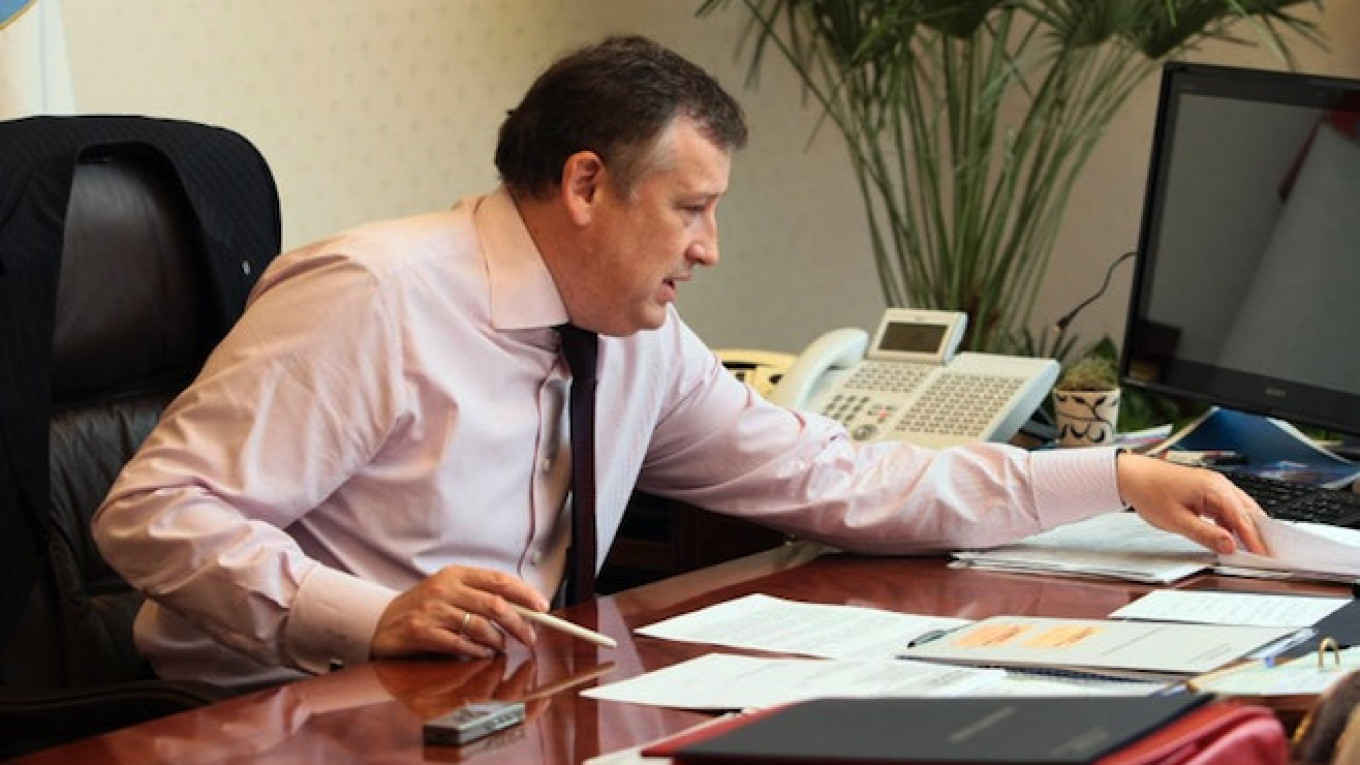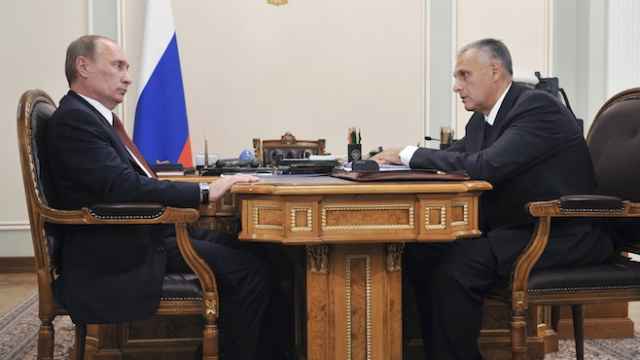A Kremlin-linked think-tank released a rating of Russia's regional governors on Monday that names the head of the Leningrad region, which surrounds St. Petersburg, as the most effective manager and the head of the Sverdlovsk region in the Ural Mountains as the least effective.
The rating, which was conducted by the Civil Society Development Foundation, evaluated regional improvements or declines from mid-February to mid-March and focused primarily on economic indicators, according to official government daily Rossiiskaya Gazeta.
The survey comes on the heels of a series of corruption investigations against Russian governors, and amid speculation that the cases indicate an increasing power struggle for control over resource-rich regions.
According to the rating, the most progress was made by Governor Alexander Drozdenko of the Leningrad region, which surrounds St. Petersburg, Rossiiskaya Gazeta reported. In contrast, Governor Georgy Poltavchenko of the city of St. Petersburg — which is a separate region under Russian law — was named among the 10 worst regional heads in the survey.
Governor Yevgeny Kuivashev of the Sverdlovsk region, which includes the city of Yekaterinburg, was named the country's worst leader, largely due to an investigation into the use of funds earmarked for the development of the Ural Mountains region, according to Rossiiskaya Gazeta.
While no accusations have been brought against Kuivashev personally, his administration lost points due to "reverberations" from the scandal, the report said.
The governors of the Samara, Nizhny Novgorod, Orlov and Primorye regions rounded out the bottom five.
Samara Governor Nikolai Merkushkin was named the second-worst administrator because of his failure to combat corruption in the region, as well as for a recent comment about World War II in which he referred to Alexander Matrosov, a decorated Hero of the Soviet Union, as having committed "suicide" on the battlefield, the report said.
Nizhny Novgorod Governor Valery Shantsev came in third from the bottom because of a criminal investigation against his protege, Oleg Kondrashov, the mayor of the regional capital, Rossiiskaya Gazeta reported.
Other recent scandals involving Russian regional governors include charges brought against Sakhalin Governor Alexander Khoroshavin for bribe-taking earlier this month. Russian President Vladimir Putin fired Khoroshavin last week.
The Chelyabinsk region also emerged as the center of a scandal last week when police reportedly detained its deputy governor, Nikolai Sandakov.
That detention was unlikely to have influenced the results of the latest ranking, however, since it took place after the March 15 closing date of the survey.
Top news-makers among Russia's regional chiefs, including Moscow Mayor Sergei Sobyanin and Chechnya's leader Ramzan Kadyrov, did not appear in either the top or bottom 10, according to rating results published by Izvestia daily.
The Civil Society Development Foundation, which conducted the survey, is headed by former Kremlin aide Konstantin Kostin, who was the deputy head of the presidential administration's domestic politics department until 2012 and is believed to be a close ally of Putin adviser Vladislav Surkov. Kostin told Rossiiskaya Gazeta that surveys on the effectiveness of regional leaders would be released once a quarter.
A Message from The Moscow Times:
Dear readers,
We are facing unprecedented challenges. Russia's Prosecutor General's Office has designated The Moscow Times as an "undesirable" organization, criminalizing our work and putting our staff at risk of prosecution. This follows our earlier unjust labeling as a "foreign agent."
These actions are direct attempts to silence independent journalism in Russia. The authorities claim our work "discredits the decisions of the Russian leadership." We see things differently: we strive to provide accurate, unbiased reporting on Russia.
We, the journalists of The Moscow Times, refuse to be silenced. But to continue our work, we need your help.
Your support, no matter how small, makes a world of difference. If you can, please support us monthly starting from just $2. It's quick to set up, and every contribution makes a significant impact.
By supporting The Moscow Times, you're defending open, independent journalism in the face of repression. Thank you for standing with us.
Remind me later.






